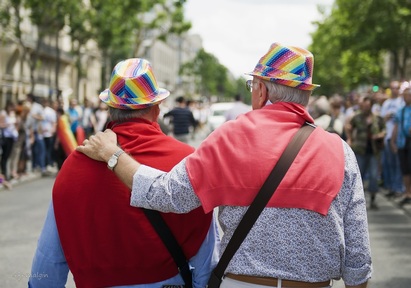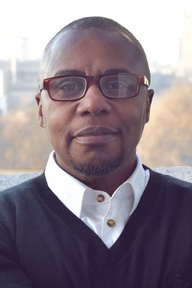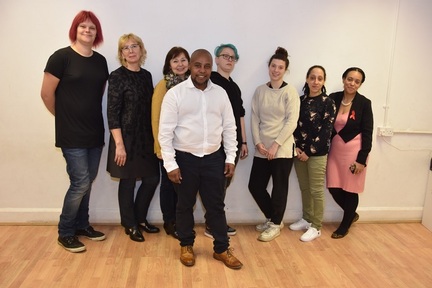UK gets its first LGBT+ home care agency
The owner of a newly launched domiciliary home care company, which is the first in the UK to deliver targeted home care services for the LGBT community, says traditional models of care in Britain are ‘letting down’ an older generation of LGBT people.

Alternative Care Services is Britain’s first LGBTQI+ (lesbian, gay, bisexual, transsexual, transgender and queer and intersex +) domiciliary care service. Its owner, Ramses Underhill-Smith, says: “Sadly, discrimination in the care industry exists. We know from recent studies that many older LGBTQI+ people feel unable to disclose their sexual orientation or gender identity to carers.”
The British-born LGBTQI+ campaigner thinks too many LGBT people feel they need to ‘go back into the closet’ to receive care when they are older.
He believes a more practical and humane alternative would be a care system that is more tailored to individuals within the LGBT community, and with this aim he set up Alternative Care Services; delivering non-discriminatory care services throughout the whole of London.
Care ‘newcomer’ admits ‘treatment I received was not good’
Mr Underhill-Smith explains he wasn’t initially from a care background. A situation a friend experienced made him think about care as a profession. He says: “I’d been living in New York for 12 years. My friend who was HIV positive needed domiciliary care and started experiencing homophobia, and it worried him. I had another friend in the care industry and we spoke about this, and I decided, that’s what I was going to do, start a domiciliary care company and take it from there.”
Not long after this, Mr Underhill-Smith moved back to the UK to look after his sister, who was very ill at the time. He soon found attitudes in the UK were not much better than in the States. He says: “I have children and I have been through surgery and the treatment I got was not good and I thought, this is the time to do it.”
In 2016, Marie Curie released its ground-breaking report into end-of-life care for LGBT people called “Hiding Who I Am”. The study, which was damning of the adult social care sector’s attitude to gay, bi and trans people, stated that many in the LGBT community were putting off accessing care at the time when they “needed it most”.
TV personality, Sandy Tosvig, who wrote a foreword to the report, said: “The UK has made many great strides towards equality for LGBT people.”, but she continued: “Trans people in particular can find the prospect of finding a health and social care professional who respects their gender identity particularly daunting. For this reason, many older, and some younger LGBT people, delay accessing social care services, even when they have a terminal illness and are at their very sickest.”
Niche care services within a ‘hetronormative’ system
As a man of trans experience, Mr Underhill-Smith is acutely aware of problems within traditional models for care in this country.

He believes there are fundamental issues within a care system that simply doesn’t acknowledge the existence of the LGBT community. This 'invisibility' happens at the outset of the care process.
He explains: “My biggest obstacle to our company even staying alive is that all the referral forms are heteronormative, so social services don’t even know how to offer our services. There is no way of offering it.
“By this I mean that the forms assume everyone is heterosexual, so therefore there is no way of even saying ‘would you like this care’?”
Mr Underhill-Smith thinks there needs to be change within the care system at large to futureproof care services for younger generations. He believes some of the issues within the current care model are increasingly not just problems for the LGBT community.
According to the charity, Ageing without Children, up to 90 per cent of LGBT people are growing old without the help of children, who, in traditional care models, are often the main facilitators of care. So, what then happens to the 90 per cent of older LGBT people who need someone to look for a care home for them, organise paperwork, pack all of their things and organise care packages?
Mr Underhill-Smith thinks this is a growing problem. He says “It is largely a problem for the older LGBTQI+ community now, but a lot of people are deciding to not have children, so how do you support them too?”
LGBTQI+ carers providing non-discriminatory care
Currently, the standard home care referral system from social services is causing the new care company more than a few headaches. Mr Underhill-Smith says councils should think more about their heteronormative referrals process.

He says of the lack of choice: “There is no way of people being ‘offered’ our services so far. I’ve contacted my local MPs and I’ve talked to Diane Abbott and said, ‘look, LGBT service needs to be offered’. You can’t just say, ‘this is the preferred provider’ and they’re going to care for everyone across the board, and this group of people can take it or leave it.”
“There is no element of choice. If a borough picks a large company which bids for their services, it goes to one of the larger, ‘preferred suppliers’, and my argument is, it should be, for LGBTQI+, that WE are that ‘preferred supplier’.”
Based in Bethnall Green, in London’s East end, Alternative Care Services provides pan-London care services such as standard domiciliary care, live-in care and dementia care, plus respite care and care for young adults.
Mr Underhill-Smith’s aim for the home care service is simple. He says: “Aside from providing the very best, person-centered care, it is our upmost goal to maintain the lifestyle our client’s values, identities, and individualities, giving them peace of mind and a safe space to enjoy their lives without the fear of judgment or discrimination.”
The care company founder actively employs staff from the LGBTQI+ community, who are more likely to be able to respond to the specific care needs of an older generation of gay, bi and trans people. He says: “Our carers provide the very best, non-discriminatory care and support for all of our service users.
“We actively employ staff from the LGBTQI+ community and make sure they are fully equipped to meet all needs of all our clients.
"Ultimately, we’ve employed people from the community to serve their community.”
Latest Features News
 28-Nov-19
2019 Election: Labour pledges £10.8 bn for free personal care while Boris Johnson sidelines social care
28-Nov-19
2019 Election: Labour pledges £10.8 bn for free personal care while Boris Johnson sidelines social care
 18-Oct-19
Podcast: Wendy Mitchell and dementia: 'My biggest fear is not knowing who my daughters are'
18-Oct-19
Podcast: Wendy Mitchell and dementia: 'My biggest fear is not knowing who my daughters are'
 30-Sep-19
World's oldest diver aged 96 says 'never accept the fact you are getting old'
30-Sep-19
World's oldest diver aged 96 says 'never accept the fact you are getting old'
 27-Sep-19
Exclusive: Care minister backs care workers' call for time off to grieve and attend funerals
27-Sep-19
Exclusive: Care minister backs care workers' call for time off to grieve and attend funerals
 20-Sep-19
Podcast: Gyles Brandreth urges care workers to learn poetry with elderly
20-Sep-19
Podcast: Gyles Brandreth urges care workers to learn poetry with elderly